Mosquitoes significantly impact human health due to their breeding in standing water and activity during dawn and dusk. Effective mosquito control involves understanding their behavior and habitat, including reducing water stagnation, using repellents, proper waste management, and professional treatments. Environmental strategies focus on manipulating habitats and introducing beneficial insects or parasitic wasps. Chemical repellents like DEET are popular but may cause skin irritation; natural alternatives include plants like citronella grass and mosquito-repelling clothing. Innovative technologies like AI-equipped drones and genetic engineering offer advanced, eco-friendly solutions for mosquito control. Community programs emphasizing source reduction and education also contribute to significant population decreases. Future trends focus on real-time monitoring, smart sensors, biopesticides, and genetic modifications for sustainable, efficient mosquito control.
“Mosquitoes pose a significant health risk, carrying diseases that affect millions globally. Understanding these pests’ behavior and habitat is crucial for effective mosquito control. This comprehensive guide explores diverse strategies, from environmental tactics and natural solutions to innovative technologies and community programs. We delve into the science behind mosquito prevention, offering practical tips for reducing their presence in your home and yard. By employing these methods, you can contribute to a healthier environment and protect yourself from these persistent vectors.”
Understanding Mosquitoes: Behavior and Habitat
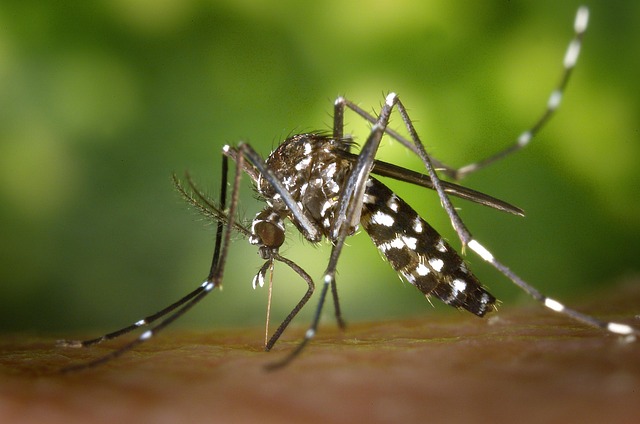
Mosquitoes are more than just a nuisance; they are tiny pests with significant impacts on human health and well-being. Understanding their behavior and habitat is crucial for effective mosquito control. These insects thrive in standing water, breeding rapidly in as little as a few millimeters of moisture. They are most active during dawn and dusk, when they seek blood meals from hosts like humans and animals. Knowing this rhythm allows for targeted strategies to disrupt their life cycle.
Behavioral patterns vary among species, but many prefer humid environments with vegetation, making lush green spaces ideal breeding grounds. Reducing water stagnation around homes and communities is a primary preventive measure. Mosquito control also involves using repellents and nets indoors during peak activity periods, ensuring proper waste management, and considering professional treatments for severe infestations.
Environmental Mosquito Control Strategies

Environmental Mosquito Control strategies focus on managing mosquito populations by manipulating their natural habitats. This involves eliminating or reducing standing water, where mosquitoes breed, as well as enhancing natural predators and parasitoids. By keeping water bodies clean and removing potential breeding sites like clogged gutters or abandoned containers, we can significantly reduce mosquito numbers.
Furthermore, introducing beneficial insects such as dragonflies and damselflies, which feed on mosquitoes, or releasing parasitic wasps that target mosquito larvae, provides a biological control approach. These methods are eco-friendly alternatives to chemical insecticides, contributing to overall Mosquito Control while maintaining a balanced ecosystem.
Chemical Repellents and Their Efficacy

Mosquito control is a significant concern, especially in regions with high mosquito populations. Chemical repellents have long been a go-to solution for many, offering a convenient and effective way to ward off these pesky insects. These repellents, often containing DEET or picaridin, create a protective barrier on the skin, making mosquitoes less likely to land and bite. Numerous studies support their efficacy, demonstrating significant reduction in mosquito bites when applied correctly.
However, it’s essential to acknowledge that chemical repellents may not be suitable for everyone. Some individuals might experience skin irritation or allergic reactions, prompting the need for alternative methods. Additionally, while these repellents are effective against a wide range of mosquitoes, they may not offer complete protection in highly infested areas without combination strategies, such as source reduction and proper clothing coverage.
Natural and Organic Solutions for Mosquito Prevention
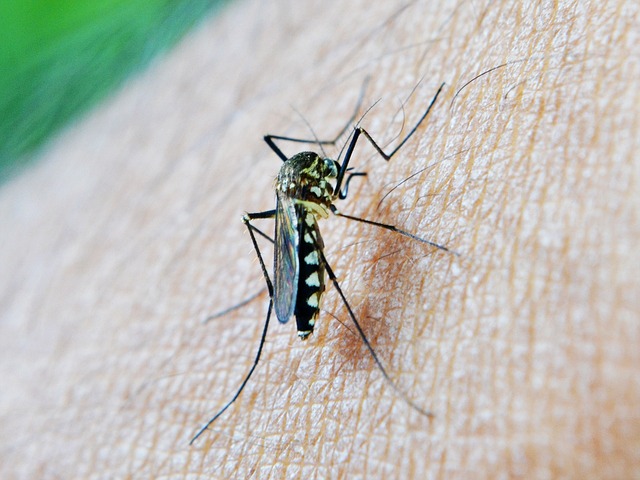
Many homeowners opt for natural and organic solutions to mosquito control, favoring environmentally friendly methods that minimize the use of chemicals. One effective approach is to plant mosquito-repelling plants in your garden or outdoor spaces. Peppermint, lemon balm, lavender, marigolds, and citronella grass are known to deter mosquitoes naturally due to their strong scents. These plants can be incorporated into landscaping, potted on balconies, or even grown indoors to create a mosquito-free environment.
Additionally, maintaining a clean and clutter-free outdoor area is crucial for mosquito prevention. Remove standing water from flower pots, buckets, or any other containers as mosquitoes breed in stagnant water. Regularly empty birdbaths and ensure proper drainage to disrupt their breeding cycle. Organic solutions not only reduce environmental impact but also promote a healthier and more enjoyable outdoor living space.
Mosquitofish and Other Biological Controls
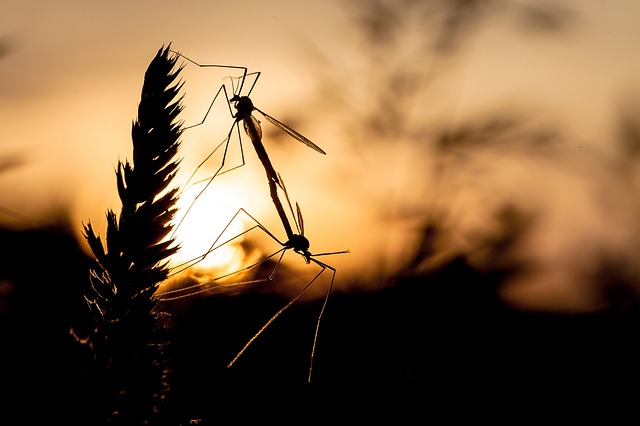
Mosquitofish, also known as Gambusia, are a popular and effective biological control method for mosquito prevention. These small, live-bearing fish are natural predators of mosquito larvae and have been used in aquatic environments to suppress mosquito populations for decades. By introducing mosquitofish into stagnant waters or breeding sites, their voracious appetite helps keep mosquito numbers under control, thereby improving mosquito control efforts.
Other biological controls include the use of beneficial insects such as dragonflies and damselflies, which feed on mosquito larvae. These predators are not only effective but also contribute to a balanced ecosystem. Additionally, bacteria like Bacillus thuringiensis israelensis (Bti) can be applied to water bodies; it’s a specific pesticide that targets mosquito larvae without harming other organisms or the environment. Such biological methods offer eco-friendly solutions for mosquito control, providing alternative and sustainable approaches to manage and reduce mosquito-borne diseases.
Innovative Technologies in Mosquito Management
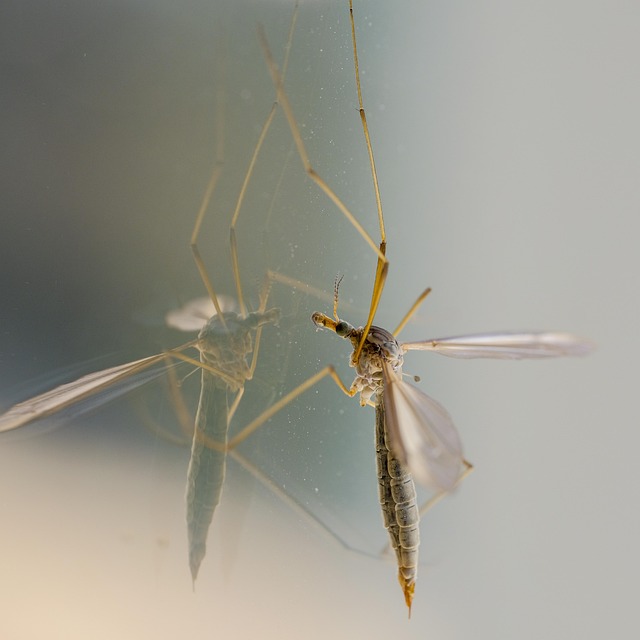
The world of mosquito prevention is seeing a surge in innovative technologies, revolutionizing traditional mosquito control methods. One such game-changer is the use of advanced sensors and drones equipped with AI capabilities. These sophisticated tools can accurately detect and track mosquito populations in real time, allowing for precise targeting of treatment areas. For instance, thermal imaging drones can identify warm-blooded mosquitoes hiding in hard-to-reach areas, while sensor networks can monitor weather conditions and moisture levels, which are key factors in mosquito breeding.
Additionally, genetic engineering and biological control methods offer promising solutions. Scientists have developed genetically modified mosquitoes that inhibit their ability to reproduce, leading to significant population declines. This approach is not only environmentally friendly but also provides a long-lasting effect on mosquito control. Furthermore, introducing natural predators like certain fish species or bacteria that specifically target mosquitoes can help manage these pests effectively and sustainably. These innovative technologies are transforming mosquito management, offering more efficient and eco-conscious ways to combat this persistent issue.
Home and Yard Modifications for Mosquito Reduction
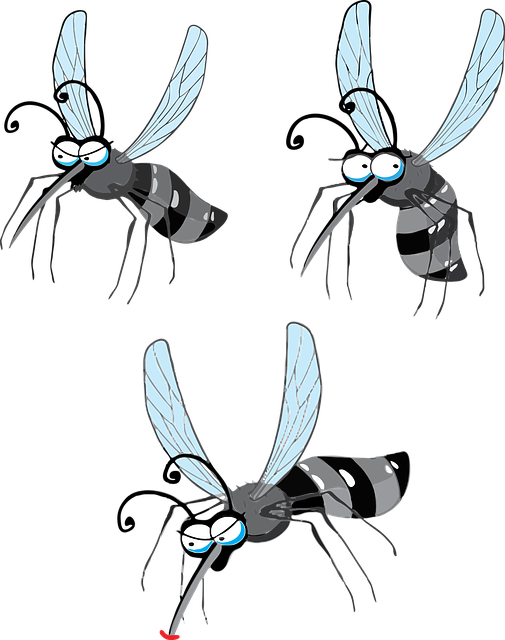
Creating an environment that discourages mosquitoes is a key aspect of effective mosquito control. Home and yard modifications can significantly reduce their breeding grounds and presence around your living space. One effective strategy is to eliminate standing water, as mosquitoes breed in stagnant water sources. Regularly empty items like flower pots, bird baths, and buckets to prevent them from becoming breeding sites. Additionally, installing screens on windows and doors ensures that these pesky insects cannot enter your home.
Landscaping plays a crucial role too. Trimming hedges and mowing grass regularly can make your yard less inviting for mosquitoes. Planting certain herbs like citronella and lavender can also act as natural mosquito repellents. Moreover, adding water features like fountains or moving water devices can deter mosquitoes, as they are not attracted to flowing water. These simple yet effective modifications contribute to a more comfortable outdoor environment and better mosquito control.
Community-Based Mosquito Control Programs

Community-based mosquito control programs are becoming increasingly important in the battle against these pesky insects. These initiatives involve collective efforts from local residents, businesses, and government agencies to create an environment that discourages mosquito breeding. By focusing on source reduction, community education, and integrated pest management techniques, these programs can significantly lower mosquito populations.
One effective strategy is to encourage property owners to eliminate standing water, as mosquitoes breed in stagnant water sources. This may include emptying containers, cleaning birdbaths, and ensuring proper drainage. Community-wide awareness campaigns can educate folks on the importance of these measures, fostering a collaborative approach to mosquito control. Additionally, using natural predators like fish and birds, as well as applying eco-friendly pesticides, helps maintain a balanced ecosystem while mitigating mosquito problems.
Future Trends in Mosquito Prevention
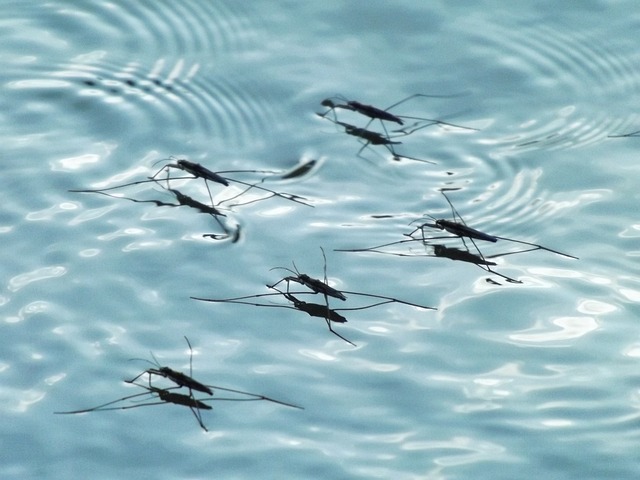
As technology advances, future trends in mosquito control promise more efficient and environmentally friendly solutions. One promising area is the integration of smart sensors and AI algorithms to predict and monitor mosquito populations in real-time. These technologies can help identify breeding grounds and hotspots, enabling targeted interventions and early prevention measures. For instance, advanced drones equipped with cameras and thermal imaging can survey large areas, detecting even small bodies of water where mosquitoes breed.
Additionally, genetic engineering and biopesticides are emerging as sustainable alternatives to chemical insecticides. Researchers are developing genetically modified mosquito strains that produce offspring unable to reproduce or transmit diseases. Biopesticides, derived from natural sources, target specific mosquito behaviors and life stages without harming beneficial insects or the environment. These innovations hold great potential for effective, long-term mosquito control while minimizing the ecological impact of traditional pest management methods.
